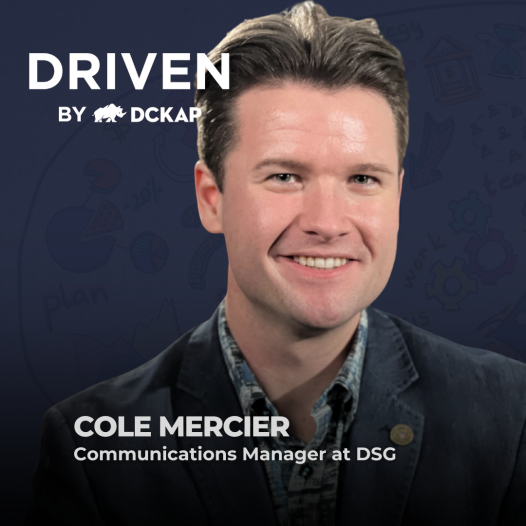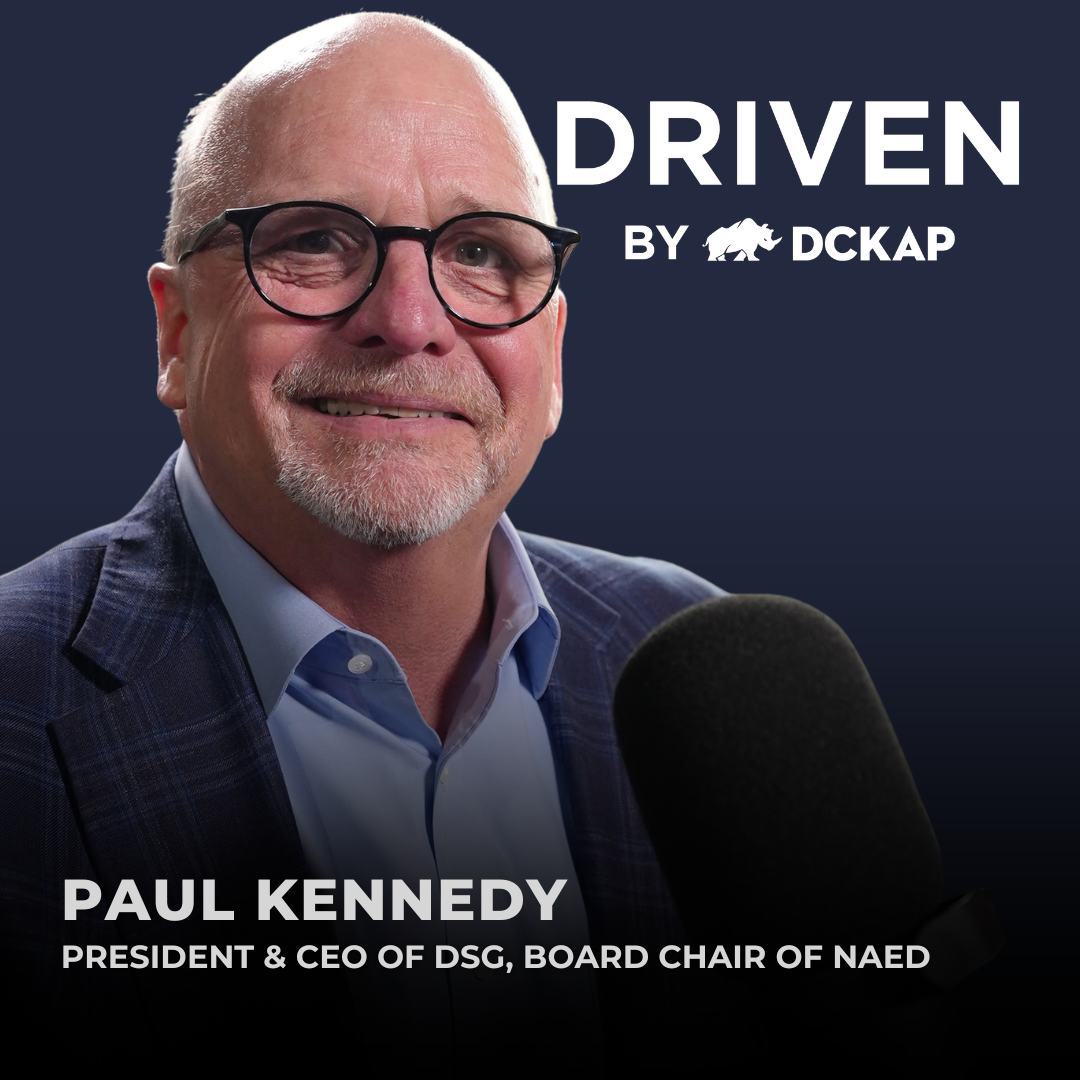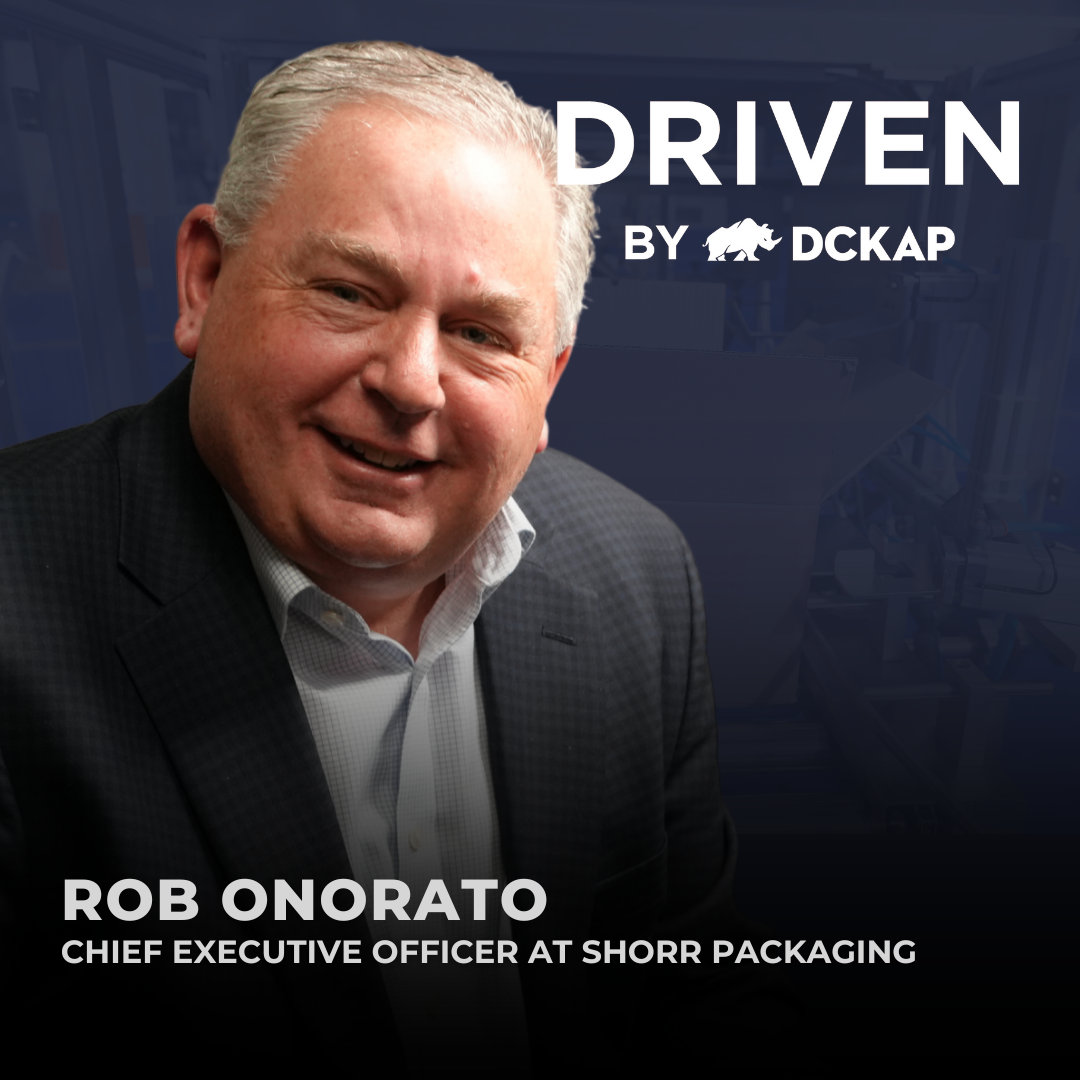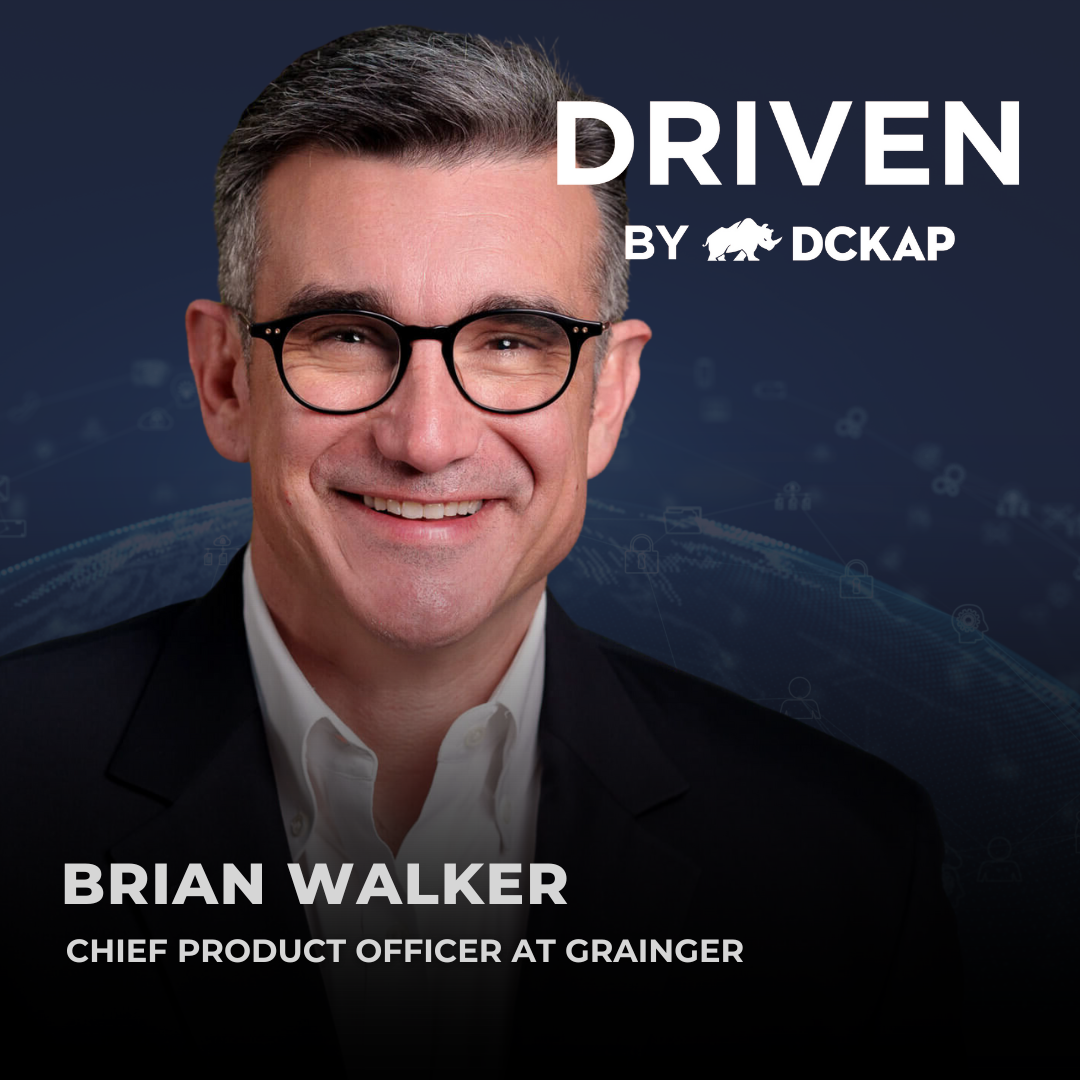Learn why product knowledge and local connections are key in this dynamic industry. Plus, discover how DSG is actively combating the trades gap through scholarships and innovative career academies!
OR LISTEN ON:
Karthik Chidambaram: We are joined by Cole Mercier, Communications Manager
at DSG. Cole, thank you so much for joining me on the show, and welcome.
Cole Mercier: Thank you for having me. Excited to be here.
Karthik Chidambaram: So, Cole, you are the Communications Manager at DSG.
What exactly is your role? I'm just trying to understand, what does the
Communications Manager do at a distribution company?
Cole Mercier: Well, it's evolved pretty quickly. From the day I joined in
2022, I joined as a Communication Strategist.
And, you know, what does that mean? I report to our Chief People Officer and
am responsible for internal communications to our employee owners, our
biggest stakeholders. And also deal with a lot of community engagement and
culture related things. But as the role has grown, we saw a huge gap in
external communications and internal communications meeting in the middle,
to align with marketing strategy as well as people strategy.
So I adopted the role of communications manager and now deal with a lot of
the external pieces as well with media inquiries and government relations
and things like that.
Karthik Chidambaram: So, DSG is a 100 plus your whole company, completely
employee owned.
Cole Mercier: Yes.
Karthik Chidambaram: For the audience who are not very familiar with DSG,
can you tell us what do you guys do?
Cole Mercier: Sure. So we're a wholesale distributor in the upper Midwest
headquartered in the Twin Cities. In Minnesota, but we've got locations all
the way from Kalispell, Montana, all the way to Detroit, Michigan with 62
locations and counting. Latest state is Illinois and Wyoming. We're excited
to keep growing. We just keep adding.
It's fun. So what do we distribute? We are in electrical. We're in hvac,
we're in plumbing, we're in waterworks. We deal with a lot of uni
municipalities. We're in. Industrial automation, we're in all sorts of
different fields, so that, that makes us a really diversified wholesaler. It
is a challenge as a communications person, like, okay, who's our target
audience?
The answer is, well, it depends. Depends where you're at, depends on the
market you're serving. We serve both rural and urban areas and that in of
itself is a challenge as well, but also a super exciting opportunity to
serve such a vast array of people in the upper Midwest.
Karthik Chidambaram: And who are the customers who are generally buying from
you? Is it the contractors or are there other distributors buying from DSG,
or who's your typical customer?
Cole Mercier: It varies based on, you know, the branch, but for the most.
For the most part, it is tradespeople, the people doing the work, the people
who need parts to start their day, the people who don't have their own
facility to store materials.
Maybe, and, you know, the majority of our customer base too are, you know,
small family owned businesses. Maybe they have a van or two or, you know, a
pickup truck to go do their work. They don't have a place to store
everything they need for each day's job. So we do deliver to job sites too
and deal with the contractors.
But, you know, our tradespeople are. Our red and butter.
Karthik Chidambaram: And for people who are trying to understand
distribution now, you talked about tradespeople, so they can even go to Home
Depot and buy it.
Cole Mercier: Mm-hmm.
Karthik Chidambaram: But instead they chose to come to DSG. Why is that?
Cole Mercier: I would say it comes down to our in-house expertise. A lot of
the folks that our counter sales area are, you know, at the city desk, our
outside sales account managers, our, even our inside sales you know, who are
more in an office setting.
They more often than not, came from backgrounds in that trade. And if they
didn't learn really quick and they become subject matter experts because
they're getting direct training from manufacturers, they're getting direct
training from their peers who have worked to those jobs in the past. So you
can't go to Home Depot.
And yes, there, there are brilliant and smart people at Home Depot. Speaking
as a first time homeowner and having questions myself, I'm not handy at all,
but. When it comes to these niche trades and you know, these very, very
complicated processes, you have to ask and rely on someone you can trust and
someone you know, despite.
Pricing or even online experience, like, you know, you do need to talk to a
person to solve a very, very niche problem. You're not gonna always be able
to solve by, by googling it or, or walking into a store and asking a, a more
generalized, broader audience, customer service desk. Those folks can be
really helpful, but you don't know exactly who's on shift and who's going to
be helpful.
DSG, it's a more consistent experience with having experts in the room,
having experts that have your back and people who can really translate from
some of the, the manufacturers, especially from an engineering standpoint,
who can, who can turn into plain English, who can turn it into something
that is digestible and, you know, having someone you can work with is super
important.
Karthik Chidambaram: So, the product knowledge is the key and that's what
you know, people come to DSG for. So in terms of tradespeople, how are you
training them or how are you for, I mean what do you think about that
industry? Right. In terms of the tradespeople, I know DSG also sponsors
trade schools, and helps with that.
Can you tell us your role there and how is that generational shift happening
right now? Right. Tradespeople, what are you seeing in the market?
Cole Mercier: Sure. So going back really quick to, you know, investing in
our younger generations. DSG has had a scholarship program since 2009, and
we offer scholarships through our generous donor donor base, you know,
scholarships to trade schools, two year degrees, apprenticeships within our
10 state footprint.
And it can be for pretty much any trade, even the ones we don't directly
serve, per se. So that's number one. Number two, we sponsor a career academy
in Western Minnesota That really isn't one of a kind. It used to be a Sam's
Club of all places that shut down and the public school system bought the
building and made a leap saying, okay, we have clear job needs in this
wonderful community and we have six career pathways.
DSG stepped in and said, Hey, we would like to sponsor one of these career
pathways because distribution is not talked about in our public schools.
Distribution is not present even in trades focused curriculum or logistics
or transportation. So we actually got distribution as a label on one of the
career pathways, and that, that to us is one of a kind and a model we
support.
We're only a couple years into the investment, but we're, we're already
seeing. You know, these kids, these high schoolers, being able to have
hands-on experience and exposure to distribution as an industry, as an
option. You know, we talk about you know, being part of the cutting edge,
you know, being part of the AI revolution, being part of EV infrastructure
build out.
You don't have to be an energy engineer or a software developer to be
involved in these fields. You can work in distribution and have exposure to
all these different things. Learn a lot along the way. And and frankly, I
mean, that, that doesn't require a four year degree always. I mean, you, you
surely can.
I, I went that route and I ended up in, in industry I really like.
Karthik Chidambaram: So in terms of, in terms of the workforce. Do you see a
lot of people taking up trade schools and do you see the workforce growing?
Cole Mercier: Well, I don't know if anyone else is a follower of Mike Rowe.
I'm not an avid listener, but do tune in sometimes.
He's been advocating for this stuff for years. I mean, that's honestly where
part of the scholarship program we, we established kind of came from that
kind of era. Late two thousands, Hey, no one's talking about the trades
anymore. Trades aren't cool. Why? Why is our public school system not
encouraging this more?
But I, you know, I don't know about you, but I'm starting to see a reverse
in the shift. Part of it is the expense of college going way up. Part of it
is jobs. You know, you invest in a four year degree. You know, if you wanna
become a doctor, lawyer an engineer, great. But, and, and I, I fully believe
as a, you know, a liberal arts person myself, I do believe in that
education.
But as far as career planning, you need to at least make kids aware of all
the options. I think trade schools coming, becoming part of the mainstream
dialogue again, which is super encouraging to see. I'm not saying, you know,
what, what DS G's done, you know, in our pocket, in our community has, you
know, directly caused that.
But there, there certainly is a correlation where, you know, more companies
are doing more of these programs or they're giving back. They're, they're
giving, they're investing more into the younger generation. I think that's
having a ripple effect across. Our, our schools, our, the, the online
dialogue, the, the media dialogue trades to me are cool again.
And you know, you see apps and tools and technology certainly plays a piece
in that too. The internet's opened so many imaginations to what people can
do with their life and you know how to build, how to build a good one.
Karthik Chidambaram: I like your thought process here where you can still be
a part of the revolution.
You can be a part of the AI revolution or the EV revolution, but you don't
have to be really writing code if that's something you don't like. You. Do
you can up your trade skills and still be a part of the revolution. I think
that's a great thought process and I totally resonate with that in terms of
communication.
So there is a big young generation, slowly getting there to the workforce.
How are you communicating to them? In terms of marketing, is there anything
you're doing? How do you see, how are you leveraging social channels? How
are you leveraging videos, YouTube, you know, which is a big thing these
days.
Cole Mercier: One thing I think distributors get wrong right away, and I
mean, this is guilty across a bunch of industries too, of not trying to, I.
On distribution, make your website mobile friendly. If your customers are
the people out on the job, they don't have a desktop computer with them in
their truck you know, you need to make your website friendly for a phone
experience you know, an iPad mini or whatever they have out out on the job.
So if they're gonna be able to find you, they need to be able to actually
navigate your website. As far as a social media piece. Different channels,
different audiences, different struggles. If you're only focused on, I guess
the, I guess the more traditional corporate channels, like, you know,
LinkedIn, Facebook those are all great to have, but where are your actual
customers?
If some of them, especially the older generations, are on Facebook, that's
great. You need to adjust your message a little bit. If you're a millennial,
the customers are on Instagram, that's great too. But as far as short form
content, you need to explore more niches like TikTok, trade Hounds. And
other, other experiences that are a bit more peer driven and a little less
company driven.
And all of these sites too have opportunities to, to sponsor and not just in
terms of the traditional target retarget search ads. You know, you don't
have to go that route. They're part of the ecosystem. They're part of, you
know, they're one of your seven touch points that they say you have to do.
But, you know, partnering with influencers, partnering with people who your
customer base can trust, especially the younger demographic, is super
important. And staying local too. You know, you don't have to always sponsor
someone who's the most popular on this whatever app you, you should partner
with people who are valued in the local market that you serve.
Whether it's a current customer or someone you're trying to, to win over,
maybe you can sponsor their training. Maybe you can sponsor their furthering
of their education to learn a certain product line. They don't have to be a
loyal customer who's been with you for 20 years, although getting them on
camera too would be a really fun way to bring all these people together.
So, as far as you know, our marketing strategy is reexamining the channels
and. Really trying to drill down where is our target customer. And you do
need that core brand foundation to stand on, but you need to be nimble
enough to flex and sell to different levels of people and sell to different
generations, especially.
Karthik Chidambaram: Yeah, be hyper-local. I think that's a very smart way
to do it, right? So instead of spending. Thousands and thousands of dollars
and getting a big influencer sponsor, local communities. That's a great
strategy. I would like to end with this question. Cole, what book are you
reading right now?
Cole Mercier: So, I'm actually part of a leadership cohort with the
University of Mary in Bismarck, North Dakota.
It's called Leadership North Dakota. It's kind of our statewide leadership
program in they're, they're having us, I guess for some of us, reread the
Seven Habits of Highly Effective People. And it's a classic. It's, it's
great. I, I think it's timeless. I read it in college as one I. Does
sometimes. And at the time it didn't really offer me much 'cause I, you
know, my frontal lobe had not quite developed quite yet, but rereading it
now with a group of peers you know, I have, I have audible.
I, I like to listen to it and I also like to read the physical book too. And
that, that one is a timeless classic. So anything. Stood the test of time.
It's not just another gimmick. This is a book that you, you read, but you do
reread in different chapters of your life and you put it back on the shelf.
You don't return it, you don't, you know, donate it.
You, you hold onto something like that. And the one that pair really well
with it is probably Atomic Habits. They kind of take the, you know, the, the
why be behind the seven habits and they do the what? How do you, how do you
actually do this? What are, what are different things you can do to make
these seven habits come to life?
And that's what Atomic Habits does on that. Reading a a four part book
series, it's more of a thriller mystery that kind of brings back that
classic. Detective story that I think we've all been hungry for, for a
while, especially younger guys like me. I never thought I'd read fiction
again. I thought I had my, my fill, but when Christmas comes by, Andrew
Klavin is, is a really great book and you can read any, any one in the four
part series by him and kind of work your way backwards, but.
That is a, that is a really great thematic book series. I would recommend to
any, any young person. Any old person. Any, anyone who just wants a classic
mystery thriller, younger guys like us.
Karthik Chidambaram: That's right. No, I think it's very interesting. Right?
I mean, I can really relate to what you said. I mean, it's nice that you
read both fiction and nonfiction.
Also when you read nonfiction, you know, it really depends on the time
you're reading it, right? So sometimes you read something like you talked
about the Seven Habits of Highly Effective People as you read it. Then not
everything gets into your head, but at later stage in your career, when you
start re-reading it, you're able to understand and appreciate it more. I can
totally relate to that.
Cole, I really enjoyed this conversation. Thank you so much for joining.
Cole Mercier: Absolutely. Thanks for having me.
Karthik Chidambaram: Thank you.
Sign up to receive email updates
Enter your name and email address below and I'll send you periodic updates about the podcast.




